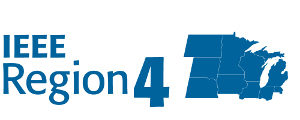Recent interest in joint radar-communications (JRC) has led to the design of novel signal processing techniques to recover information from an overlaid radar-communications signal as well as transmit a common signal for both systems. In this talk, we focus on two important tools for the design and signal processing of JRC systems: learning and sparsity. The interest in learning-based JRC is driven largely by the need to solve difficult nonconvex optimization problems inherent in a JRC design as well as to address the highly dynamic channel environments. Toward fully realizing the coexistence/co-design of both radar and communications, the optimization of resources for both sensing and wireless communications modalities is crucial. But the optimization-based approaches suffer from high computational complexity and their performance strongly relies on factors such as perfect channel conditions, specific constraints, and mobility. In this context, learning techniques provide robust performance at an upfront training cost. We discuss applying learning to various JRC aspects including channel estimation, antenna selection, resource allocation, and wideband beamforming. The second half of the talk focuses on exploiting sparsity in a general spectral coexistence scenario, wherein the channels and transmit signals of both radar and communications systems are unknown at the receiver. In this dual-blind deconvolution (DBD) problem, a common receiver admits a multi-carrier wireless communications signal that is overlaid with the radar signal reflected off multiple targets. The communications and radar channels are represented by continuous-valued range-time and Doppler velocities of multiple transmission paths and multiple targets. We exploit the sparsity of both channels to solve the highly ill-posed DBD problem by casting it into a sum of multivariate atomic norms (SoMAN) minimization. Toward the end of the talk, we focus on highlighting emerging JRC scenarios, particularly at mm-Wave and THz frequencies, vehicular applications, distributed radar-communications networks, intelligent surfaces, and aerial channels.Co-sponsored by: IEEE-USA MOVE ProgramSpeaker(s): Kumar Vijay MishraVirtual: https://events.vtools.ieee.org/m/406564

